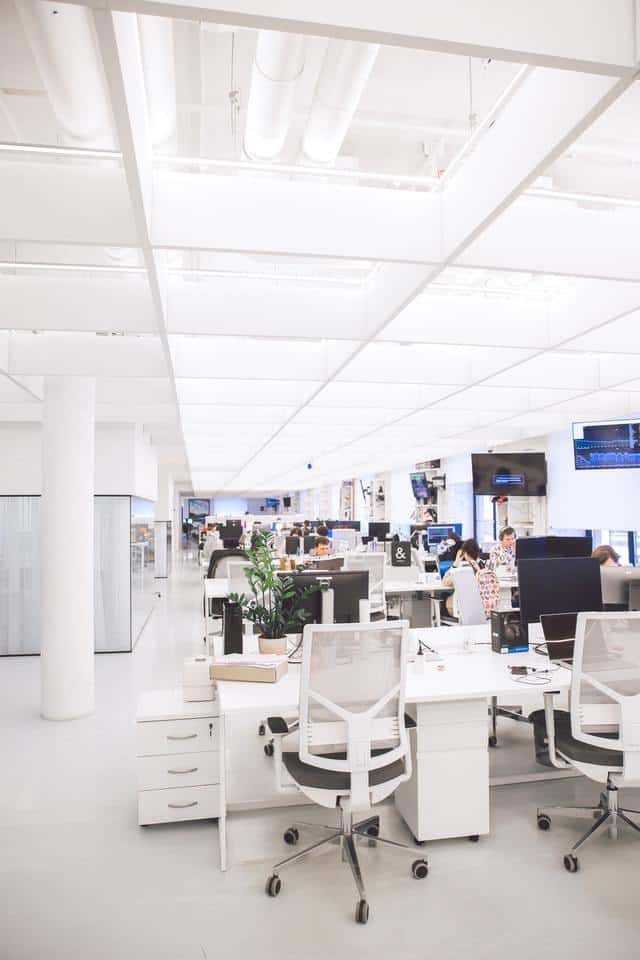As more companies call their employees back to work, many people want to know that it’s safe to return as COVID-19 continues to spread. It seems that guidance from the government for a safe return to work changes frequently. The CDC and OSHA have updated their guidance for employers, and it is a good idea for employees to be aware of the latest recommendations. We outline some of the most important points here, but remind you that for the most up-to-date guidance, you should visit the CDC and OSHA websites.
The CDC has issued new guidelines that could have a significant impact on office buildings and how people operate in them from now on. The CDC has developed posters, handouts, and other informational materials that employers can provide at the workplace. When you go back to the office, look for these materials. If you see them, or materials your company has created that mirror the information, then your employer is likely listening to the advice from CDC and OSHA. Also, importantly, your employer should be communicating these guidelines and changes in behavior on a regular basis and in very clear terms.
Let’s now run through some highlights of the latest guidance.
The CDC is urging building managers to ensure their structures are ready for people to enter them again. This includes making sure that HVAC systems that have been shut down are working properly. Buildings should utilize as much outdoor air as possible. This can mean opening windows where it is safe to do so.
Employers should identify where and how workers might be exposed to COVID-19 at work. This includes areas where people can come into close contact – meeting rooms, break rooms, cafeterias, locker rooms, waiting areas, check-in areas and entry points and exits.
Employers might have to adjust seating arrangements and workstations to try to keep people six feet apart. This can include removing furniture, draping furniture to prevent its use, and placing visual cues such as tape on the floor to help maintain that important six-foot space.
It might seem like no one should have to be reminded about this, but if an employee is not feeling well and has symptoms that could be related to COVID-19, they should stay home and probably contact their physician. If someone shows up to work sick, they should be sent home and the areas they visited cleaned and disinfected.
The CDC suggests that employers should consider daily in-person or virtual health checks to make sure people aren’t showing signs of having contracted the virus. The CDC provides guidance to employers on how to do this correctly and it is available for anyone to read.
Staggering shifts and break times can reduce how many people gather in common areas at one time. Employers can also consider posting signs asking visitors to call from their cars when they arrive, then the company can control how many people are entering at any one time.
Clean, clean, clean. Companies should be cleaning and disinfecting high-touch surfaces throughout the day. The CDC provides guidance on doing this properly.
It’s also a good idea for employers to provide disposable wipes and cleaning materials to employees to that they can wipe down frequently touched surfaces.
Employers should not only encourage frequent hand washing but should provide employees the time to do it.
Social distancing should be stressed. This includes prohibiting handshakes, hugs, and fist bumps. Some people might find this off-putting, but it provides more safety.
One suggestion might be difficult if not impossible for some workers. The CDC suggests offering incentives to employees to drive to work alone. Some employees do not own cars or rely on public transportation for other reasons. While this seems like a well-intentioned suggestion, it might be one of the more difficult ones to pull off.
Wear masks. The exception would be if someone can’t wear a mask for a medical reason. Otherwise, when you are around other people, you should be wearing a mask.
OSHA requires Personal Protective Equipment for many jobs. With COVID-19 employers might have to consider providing masks, gloves and even structural barriers between staff and customers where none was needed before.
It was mentioned before, but it’s worth mentioning again, that employers should communicate frequently, clearly and positively about how employees can stay safer and how the company is doing its part to ensure your safety.
As you return to work, if you have any concerns about the procedures your employer is implementing, you should speak with your manager about them. If you have any serious problems, you can reach out to us at 334-237-7773 or visit our website at www.justiceatwork.com to schedule a call with an attorney who can discuss any issues with you.


